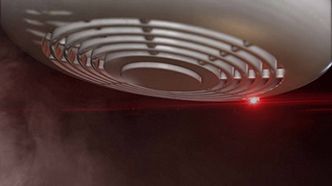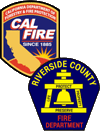SMOKE DETECTORS

The USFA Fema Site provides important recommendations Regarding Smoke Detectors
Key Points:
1. Install your smoke alarms correctly Install smoke alarms on every level of your home, including the basement. Make sure there is an alarm in or near every sleeping area. Mount smoke alarms high on walls or ceilings—remember, smoke rises. Ceiling-mounted alarms should be installed at least four inches away from the nearest wall; wall-mounted alarms should be installed four to 12 inches away from the ceiling. If you have pitched ceilings, install the alarm near the ceiling's highest point. Don't install smoke alarms near windows, doors, or ducts where drafts might interfere with their operation. Hard-wired smoke alarms operate on your household electrical current. They can be interconnected so every alarm sounds regardless of the fire's location. This is an advantage in early warning because it gives occupants extra time to escape if they are in one part of the home and a fire breaks out in another part. Hard-wired alarms should have battery backups in case of a power outage, and be installed by a qualified electrician. Don't paint smoke alarms; paint, stickers or other decorations could keep them from working properly. Keep your smoke alarms working properly.
2. Keep your smoke alarms working properly Test smoke alarms at least once a month, following manufacturer instructions. Replace batteries in your smoke alarm once a year, or as soon as the alarm""chirps,"" warning that the battery is low. HINT: schedule battery replacements for the same day you change your clock from daylight to standard time in the fall. Never "borrow" a battery from a smoke alarm. Smoke alarms can't warn you of fire if batteries are missing or have been disconnected. Don't disable smoke alarms even temporarily – you may forget to replace the battery. If your smoke alarm is sounding""nuisance alarms,"" it may need dusting or vacuuming. If that doesn't work, try relocating it further away from kitchens and bathrooms, where cooking fumes and steam can cause the alarm to sound. Regularly vacuuming or dusting your smoke alarms following manufacturer's instructions can help keep it working properly. Smoke alarms don't last forever. Replace your smoke alarms once every 10 years. Make sure everyone in your home can identify and awaken to the sound of the alarm.
3. Hold Fire Drills Plan regular fire drills (twice a year is best) to ensure everyone knows what to do when the smoke alarm sounds. Hold a drill at night to make sure that sleeping family members awaken at the sound of the alarm. If you are building a new home or remodeling your existing home, consider installing an automatic home fire sprinkler system. Sprinklers and smoke alarms together cut your risk of dying in a home fire 82 percent relative to having neither – a savings of thousands of lives a year.
